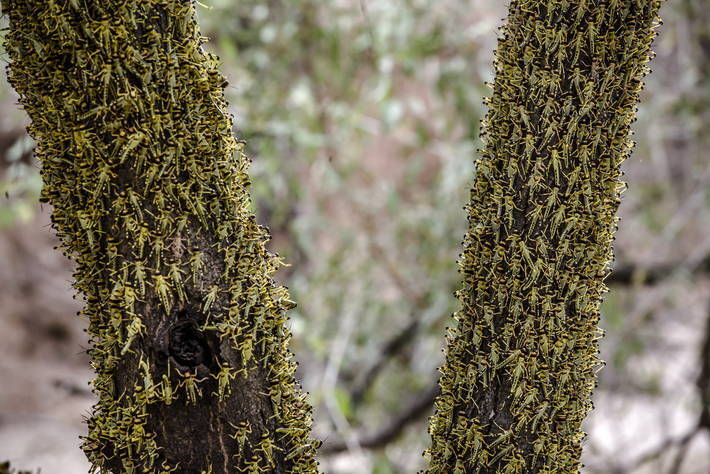
Opening concert of Annual Meeting 2025 in Davos-Klosters to address glacier melt in Antractica
The opening concert of the Annual Meeting 2025 in Davos-Klosters will address the pressing issues ...

The UK extended £ 17 million to support the Food and Agriculture Organization of the United Nations (FAO) to support efforts to combat the ongoing desert locust surge in East Africa and its potentially devastating impacts.
“We are once again grateful to the United Kingdom for their consistent support, which will go far helping to safeguard the food security and livelihoods of vulnerable farmers and their families in Africa and Asia threatened by desert locust,” said FAO Director-General QU Dongyu.
The funds come via the United Kingdom’s Department for International Development (DFID) and are in addition to a previous contribution of £ 8 million donated earlier this year for the desert locust appeal.
The contribution from the United Kingdom will scale up ongoing efforts in East Africa, Yemen and Southwest Asia. DFID also announced an additional £ 1 million which will be dedicated to supporting several institutions, including the University of Cambridge to establish tools, technologies and partnerships needed for effective pest surveillance, forecasting and early warning activities.
FAO is augmenting governments and other partners’ capacities in affected countries with surveillance and coordination, technical advice, supplies and equipment.
The UN agency is also providing farmers with livelihood packages, assuring veterinary care and feed for vegetation-starved livestock, and assisting families who have lost their crops with cash and farming inputs so they put food on the table. With just a 1 km2 swarm able to consume the same amount of food in one day as 35 000 people, the pest poses an unprecedented threat to the immediate food security and longer-term resilience of millions of vulnerable famers and pastoralists.
With FAO’s support, 1.3 million tons of crops have been protected – enough to feed nearly 9 million people for an entire year. Yet the surge shows no sign of slowing across the Horn of Africa, and in fact may be increasing in Southwest Asia.
According to the Organization’s desert locust hub, there is still a serious risk of swarms migrating from the Horn of Africa to West Africa, India and Pakistan. Heavy spring rains across most of East Africa only led to better breeding conditions for the most destructive migratory pest in the world, with the next generation swarms potentially even larger than the ones we are grappling with now.
“Although substantial gains have been made in the fight against the desert locust, sustained support is critical to contain the threat. Capacity to detect Desert Locust early enough is crucial, including through the use of technologies and partnerships, and for that we must work together,” said Qu.
These operations must be maintained to avert a potential humanitarian crisis from unfolding in the region; prior to the arrival of the locusts and the COVID-19 pandemic, some 25 million people were already facing acute hunger in Eastern Africa in 2020, according to the recent Global Report on Food Crises. An additional 17 million people in Yemen were in the same situation.
The opening concert of the Annual Meeting 2025 in Davos-Klosters will address the pressing issues ...
Juhayna Food Industries proudly announced that its agricultural arm, El Enmaa for Agricultural Development, has ...
The United Nations Environment Program (UNEP) and several partners launched a pilot project to build ...


اترك تعليقا